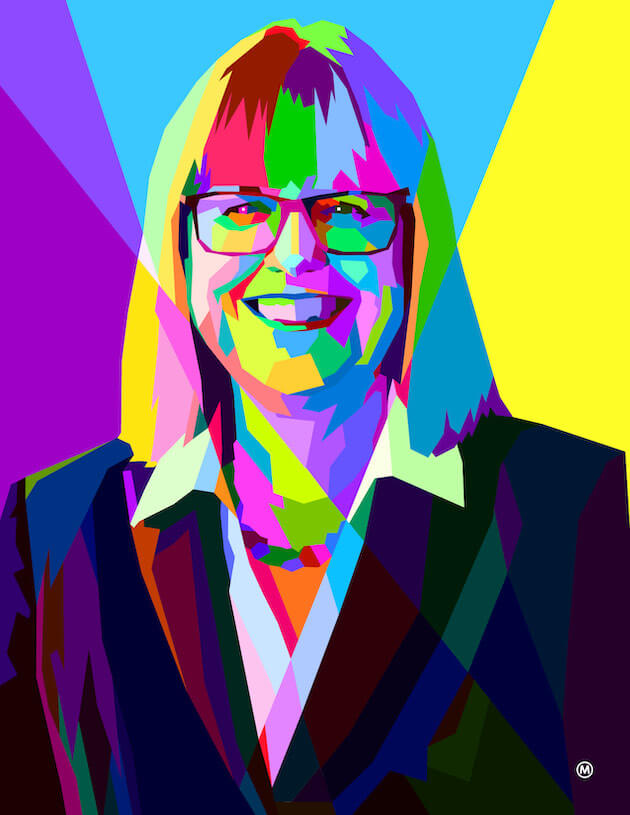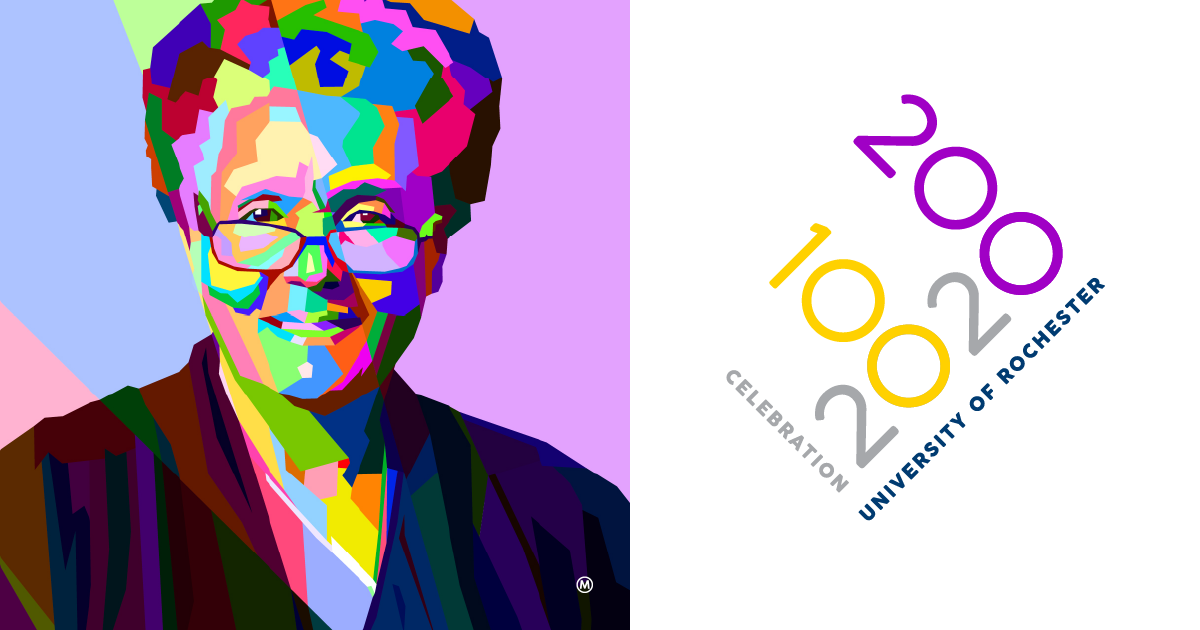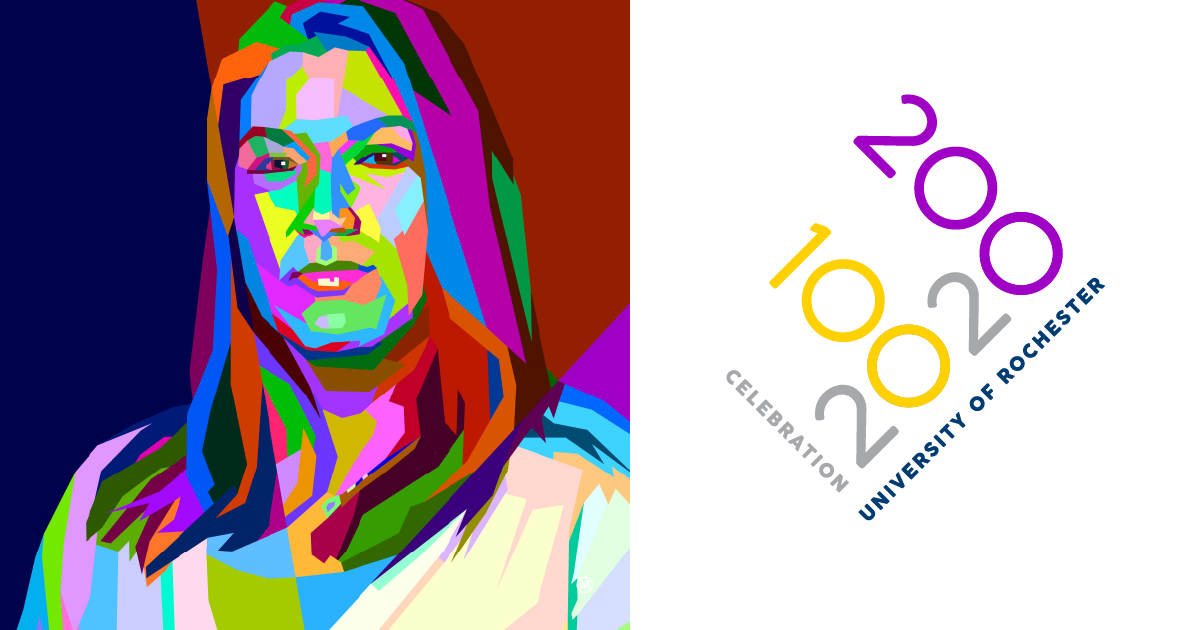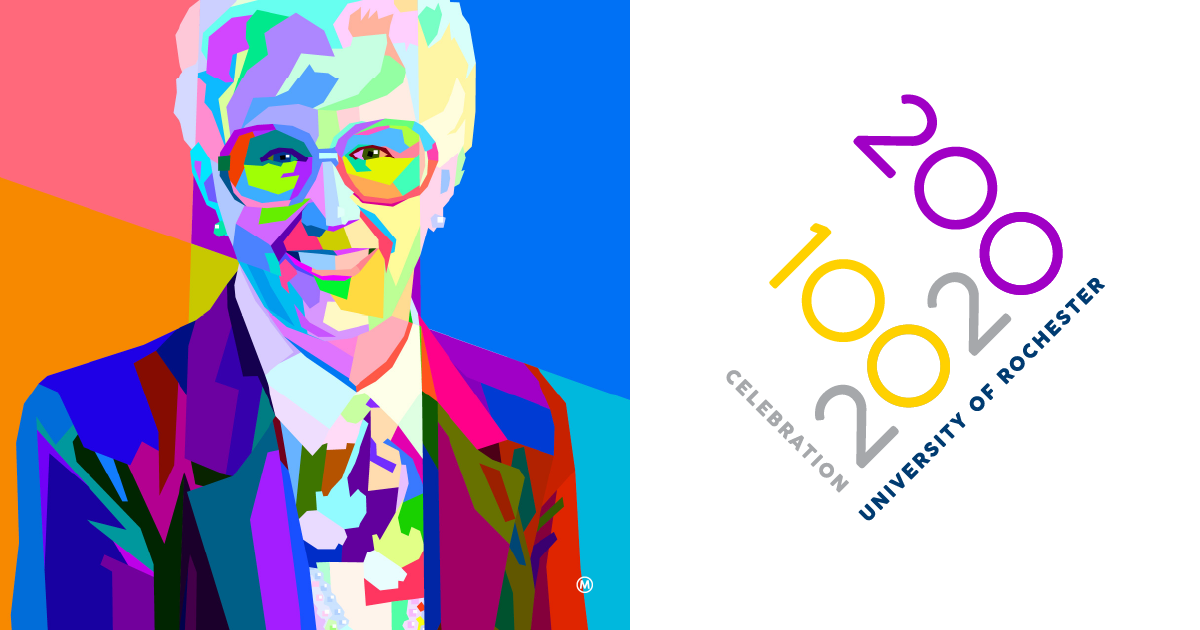University of Rochester alumnus. Canadian physicist. Pioneer in the field of lasers. Recipient of the 2018 Nobel Prize in Physics.

The laser, or light amplification by stimulated emission of radiation, has captured the imaginations of the masses. Whether in sci-fi movies or futuristic visions, the world has been enraptured by lasers since Theodore Maiman’s invention in the 1960s.
Donna Strickland ’89 (PhD) was no different. “I always thought lasers were cool,” she has said, and she vividly recalls seeing her first laser at the age of 10. “It was love at first sight.”
Years later, as a doctoral candidate in the University of Rochester’s Institute of Optics, Strickland entered the Laboratory for Laser Energetics. Dazzled by the brilliant beams of red and green light, Strickland felt like she was working around a Christmas tree.
Strickland then met Gérard Mourou, a French physicist and engineering professor. As her advisor, Mourou shared with Strickland his ideas for increasing the intensity of a laser without destroying the mechanism or means of amplification itself. This was a key hurdle in achieving a powerful laser with a footprint somewhat smaller than a football field.
Strickland endeavored to “bring Gérard’s beautiful ideas to life.” And she did just that with the success of chirped pulse amplification (CPA), a method to amplify an ultrashort laser pulse up to the petawatt (1015 W) power level. That’s a lot of power.
Strickland could not have imagined the enormous and ongoing impact CPA would have on science, industry, energy, and medicine. It would go on to drive lifesaving advances in imaging and cancer treatments as well as corrective eye surgery.
Strickland also could not have fathomed that two decades later, in 2018, she would join the ranks of Madame Curie and Maria Goeppert Mayer as one of only three women in history to win the Nobel Prize in Physics. In fact, Strickland doesn’t think of herself as a woman in science. She’d like to be known as a scientist, period. And for Strickland, well, lasers are just plain fun.
“I want to have fun while I’m working. Now not everyone thinks physics is fun, but I do. I think experimental physics is especially fun, because not only do you get to solve puzzles about the universe or on Earth, but there are really cool toys in the lab.”
—Donna Strickland
Strickland’s love of lasers as a child, as well her ability in math and science, led to a higher education in optics. Intrigued by the course offering in electro-optics and laser science, Strickland enrolled at the University of McMaster in Ontario, Canada. She earned a bachelor’s degree in engineering physics in 1981.
She achieved her PhD in physics from the University of Rochester upon completing her Nobel Prize–winning thesis in 1989. In her doctoral work, the Nobel committee recognized Strickland for paving the way toward “the shortest and most intense laser pulses created by mankind.”
Strickland went on to work for the National Research Council of Canada in Ottawa, the Lawrence Livermore National Laboratory in California, and the Advanced Technology Center for Photonics and Opto-electronic Materials at Princeton University. She joined the faculty at the University of Waterloo in Ontario in 1997, where she has worked to bring more women into the physics department.
In 2018, Strickland became the first Nobel laureate to deliver the University of Rochester Commencement address. The University then awarded Strickland the Rochester Distinguished Scholar Award and the George Eastman Medal to recognize her outstanding achievement, dedicated service, and phenomenal contribution to society.
Awards and Honors
- Nobel Prize in Physics, 2018
- Fellow of the Optical Society
- Cottrell Scholars Award from Research Corporation
- Premier’s Research Excellence Award
- Alfred P. Sloan Research Fellowship
- Fellow of the Royal Society of Canada
- Companion of the Order of Canada
- Golden Plate Award from the Academy of Achievement
- University of Rochester George Eastman Medal
- Rochester Distinguished Scholar Award



